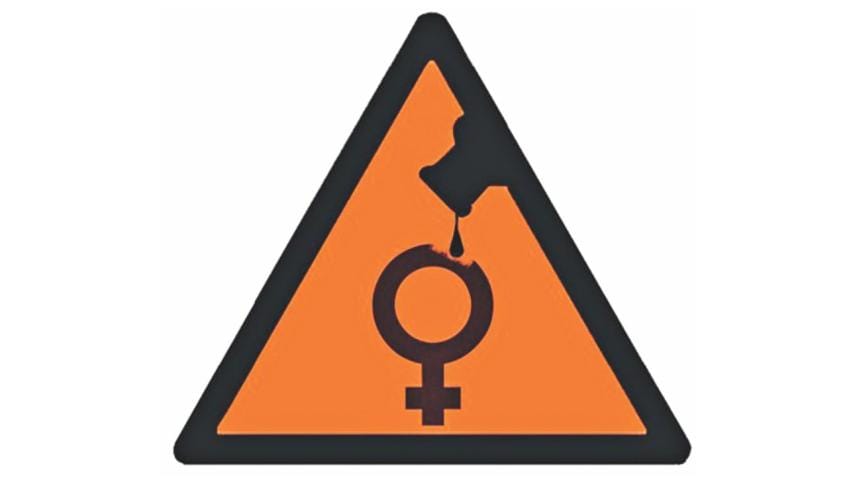Combating acid violence

An acid attack is a wrath hit which is a form of vicious assault. It is an act of acid throwing or a similarly corrosive substance onto the body of another with the intention of mutilate, maim, torture, or kill. Although acid attacks are reported in many parts of the world but, it is more widespread in Bangladesh than most of the countries. Since 1999 till September 2015, Bangladesh has faced almost 3283 acid incidents with around 3640 survivors. Although the acid violence rate has been decreasing 15 to 20% after enacted the Acid Control Act and Acid Crime Control Act in 2002. However, the acid victims are not receiving appropriate justice for several reasons. In addition, the conviction rate of acid crime is very low in Bangladesh.
The states should not only enact some legislation and policies regarding any particular offence like acid violence but also need to make certain effective execution of those policies. In order to implement such laws effectively, governments should: (1) conduct appropriate investigations of acid attacks; (2) protect victims from threats that could undermine those investigations, (3) prosecute and punish perpetrators of acid attacks; and (4) ensuring restorative justice of those victims.
In Bangladesh, our criminal justice systems not only fail to sufficiently prosecute and penalise the perpetrators of acid victims but also face distinctive challenges in delivering justice. We have limited resources in combating acid violence. Inadequate number of under trained law enforcement officers isn't enough to deal this type of sensitive matter properly and also hard to bring the perpetrators into justice.
Furthermore, many victims cannot access the court to seek justice and this is because of their poverty and lack of knowledge of the legal system. Section 15(1) Acid Control Act stated that “any acid victim or someone on his behalf can apply to the District Committee for legal aid”. This provision clearly shows that it is an option for legal aid for any acid victim but is there any strict rules are set out regarding appointment of any lawyer? It seems like the provision is a dead provision and that no proper uses.
Although we have acid control regulations but the police do not sufficiently enforce the law requiring users to obtain licenses. Hence, many users use acid without obtaining licenses. This is a rife failure to comply with the license obligation is attributed to the lack of knowledge about the law. In addition, extra works of police officers create hindrance to check all the acid users' licences. Furthermore, acid is very cheaper and available to buy in Bangladesh. For example, a bottle of sulphuric acid sells in Dhaka, Bangladesh for as little as Tk. 15 ($0.15 USD). Therefore, people can buy acid very easily and without any hassle.
Acid is extremely corrosive chemical and it has a disastrous effect on human flesh. Acid assault is dangerous and it could melt the skin permanently. It is a heinous crime that causes psychological and physical breakdown including identity crisis. Therefore, state has to act with due and diligence to protect the suspects and victims from violence.
From buying acid to conviction of the perpetrators, the whole acid violence pattern has to be deal by the government very carefully and sincerely. Although the core part of the acid violence is to prosecute and punish the perpetrator but it is also essential to ensure restorative justice of the acid victims. Survivors often face social isolation and that could damage their sense of worth and social-economic status. Although we know that some NGOs are working well to reintegrate the survivors but it seems like the resources are not enough to ensure a certain levels of necessities.
MD MUSTAKIMUR RAHMAN
Legal Research Assistant
Bangladesh Institute of Law and International Affairs (BILIA)
 For all latest news, follow The Daily Star's Google News channel.
For all latest news, follow The Daily Star's Google News channel.
Comments